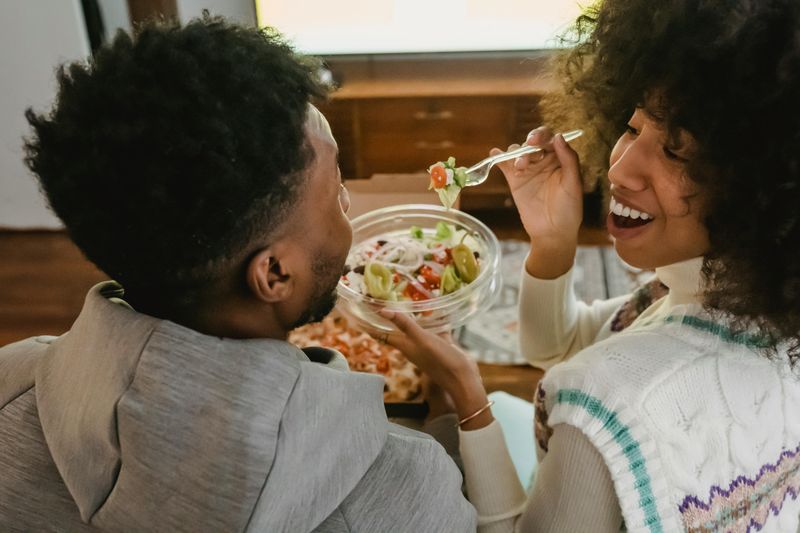10 Hard Truths About Relationships Nobody Likes to Admit

Relationships are messy, complicated, and full of surprises that nobody warns you about. We all want love to be perfect, but the reality is that even the healthiest partnerships come with uncomfortable truths. Understanding these hard facts can actually make your relationships stronger and more honest.
1. Love Alone Isn’t Enough

Falling head over heels feels amazing, but those butterflies won’t pay the bills or solve arguments. Successful couples need more than just warm feelings to make things work long-term.
Commitment, communication, and shared values matter just as much as romance. You might love someone deeply but still struggle if you want completely different futures.
Real relationships require effort, compromise, and teamwork every single day. The spark might fade sometimes, and that’s when the other stuff really counts.
2. You Can’t Change Your Partner

So many people enter relationships thinking they’ll fix or improve their partner over time. This mindset creates frustration and disappointment for everyone involved.
Your boyfriend won’t suddenly become neat if he’s been messy his whole life. Your girlfriend won’t magically share your hobbies just because you’re dating.
People only change when they genuinely want to, not because someone nags them. Accept who they are right now, or move on before resentment builds up and poisons everything good between you.
3. Your Happiness Is Your Own Responsibility

Nobody else can make you happy if you’re miserable inside. Expecting your partner to fix your problems or fill every emotional need puts impossible pressure on them.
Each person needs to work on their own mental health and find joy independently. When you’re whole on your own, you bring your best self to the relationship instead of draining your partner.
Codependency might feel romantic, but it’s actually unhealthy and exhausting. Build your own interests, friendships, and confidence outside the relationship.
4. Fighting Doesn’t Mean You’re Doomed

Arguments feel awful, but every couple disagrees sometimes. The difference between healthy and toxic relationships is how you handle conflict, not whether it exists.
Learning to fight fair means listening, avoiding insults, and working toward solutions together. Some couples never argue because they bottle everything up, which eventually explodes in worse ways.
Disagreements can actually strengthen your bond when handled with respect and honesty. The goal isn’t avoiding conflict but navigating it without destroying trust or hurting each other.
5. Chemistry Fades, Partnership Remains

That electric attraction you felt at the beginning won’t stay at the same intensity forever. Biology literally changes how your brain responds after the honeymoon phase ends.
Long-term couples build something deeper than just physical attraction and excitement. Friendship, trust, and genuine partnership become the foundation when the initial fireworks calm down.
This doesn’t mean the relationship is dying; it’s just evolving into something more mature. You can still have passion, but it requires intentional effort rather than happening automatically like it did early on.
6. You’ll Sometimes Feel Attracted to Others

Being in a relationship doesn’t make you blind to attractive people around you. Noticing someone else is human nature, not automatic betrayal or proof your relationship is failing.
What matters is what you do with those feelings and where you set boundaries. Commitment means choosing your partner repeatedly, even when temptation exists.
Pretending you never find anyone else attractive creates unnecessary guilt and dishonesty. Acknowledging these feelings privately while remaining faithful is actually healthier than denying reality and feeling shame about normal human responses.
7. Your Partner Can’t Read Your Mind

Your needs won’t be obvious unless you express them. Expecting others to know them without you speaking up is a recipe for frustration for both sides.
Speaking up about your needs feels vulnerable, but it’s essential for getting them met. Dropping hints and then getting mad when they’re missed is unfair and frustrating.
Clear, direct communication might feel less romantic than mind-reading, but it actually works. Say what you mean, ask for what you want, and give your partner the information they need to love you well.
8. Past Baggage Affects Present Relationships

Everyone carries wounds from previous relationships, childhood experiences, or past hurts into new partnerships. These old injuries can trigger surprising reactions that seem out of proportion to current situations.
Your partner might get defensive about things that relate to how an ex treated them. You might struggle with trust because someone broke your heart years ago.
Recognizing these patterns helps you work through them instead of letting them sabotage good relationships. Sometimes professional help makes sense for processing deep issues that keep interfering with your ability to connect fully.
9. You’ll Have to Sacrifice Some Independence

Being in a relationship involves give and take. Sacrificing some freedom to accommodate your partner is healthy and expected, not a loss of identity.
Checking in with your partner, considering their feelings, and making joint decisions replaces total independence. Balancing personal space with togetherness is an ongoing negotiation that changes over time.
The key is finding compromise that feels fair rather than suffocating. Both people should maintain their identity while also building a shared life that requires some flexibility from everyone involved.
10. Breaking Up Might Be the Right Choice

Sometimes relationships end not because anyone did something terrible, but because you’re simply incompatible. Staying together out of fear, comfort, or stubbornness can waste years of your life.
Recognizing when something isn’t working takes courage and honesty with yourself. Not every connection is meant to last forever, and that’s okay.
Ending a relationship doesn’t mean it was a failure or that you didn’t try hard enough. Sometimes the healthiest choice is admitting you want different things and letting each other find better matches elsewhere.

Comments
Loading…